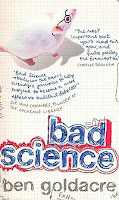Chewing gum for the brain: Why do people talk such rubbish about Media Studies?
1: Summarise the notes you made for each session
2: Reflect on what you took away from that session
3: Find and post any relevant links (youtube/books etc) that were reffered to in the session.
*What explicit learning points can you connect to your Mest 4 Project?
Professor David Buckingham:
Why Media Studies is worth studying.
This session encouraged me to have further passion for Media Studies.
Dr Julian McDougall:
Online media, Cleggmania, and the Cowell Factor.How do online media and convergence impact on the ways audiences and producers use and create media?
He gave tips on how to investigate:
- Read ideas
- Apply the reading to example
- weigh up the debate
- develop an informed, academic view
Pete Fraser:
Perfecting your production work.
How to get the most out of your practical projects.
RESEARCH
- Really look at real example
- keep evidence
- conventions, audience, institution
PLANNING
- what could go wrong?
- show the process of your 'journey'
- keep ideas simple
- keep records of feedback
- People, places, props, costumes
- get it done early
- share contact details
- 'hates zoom'
- Practise on it
- Always shoot extra for coverage
- start with the big picture
http://www.artofthetitle.com/
This session helped me greatly in the organisation process for my moving image production and the first step to take.
Professor Annette Hill:
Paranormal Media: audiences, spirits and magic in popular culture
Supernatural media, audiences, and key concepts at A level.
I found her Topic very current but i thought it was too unusual/far-fetched to make notes; However there is a name i noted down whom she suggested we should read a book his written called 'bad science'.


From her session I can use her opinion when discussing my text for my investigation which is Twilight and the fascination that is popular in modern culture.

